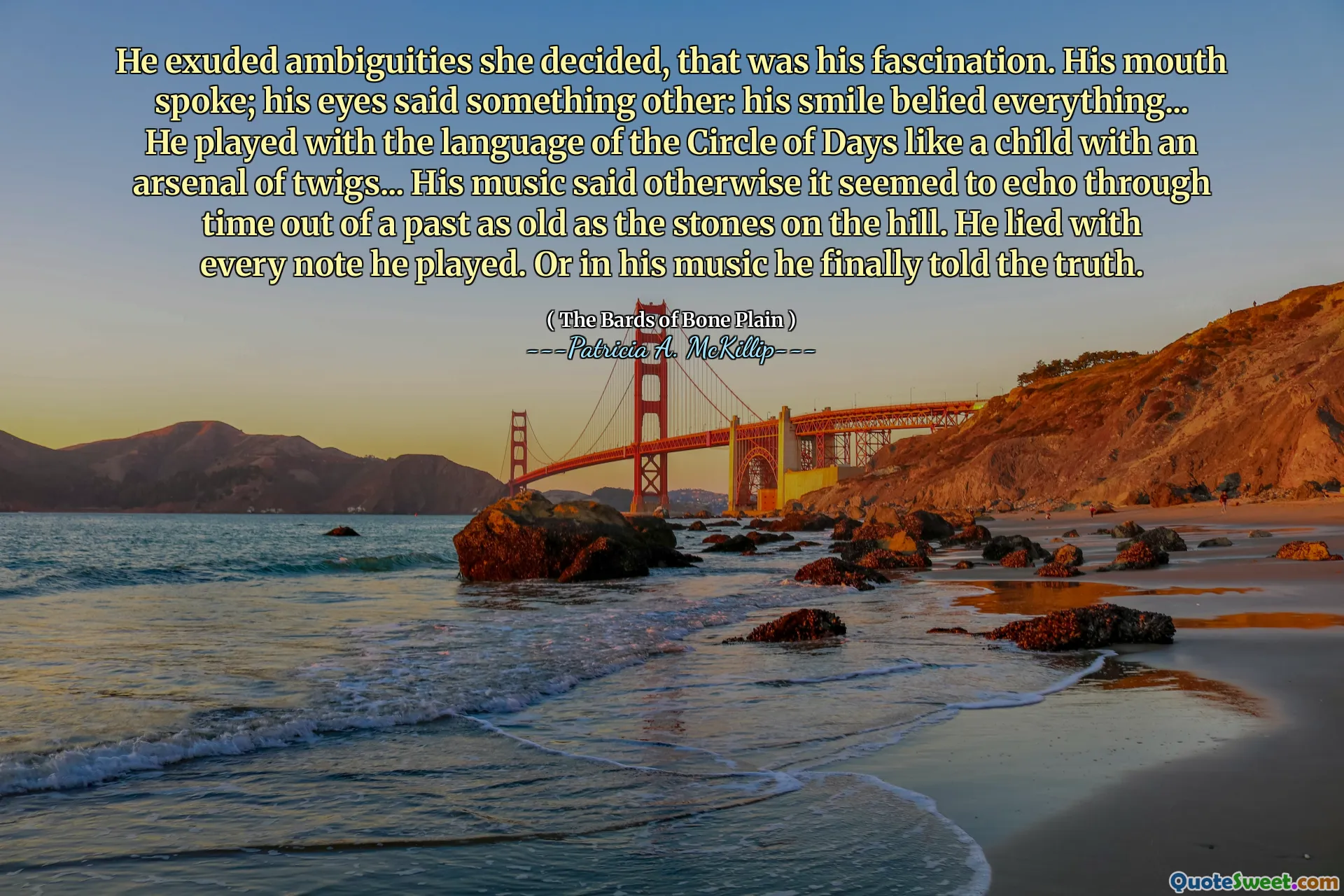
He exuded ambiguities she decided, that was his fascination. His mouth spoke; his eyes said something other: his smile belied everything... He played with the language of the Circle of Days like a child with an arsenal of twigs... His music said otherwise it seemed to echo through time out of a past as old as the stones on the hill. He lied with every note he played. Or in his music he finally told the truth.
This quote captures a complex dance between appearance and essence, truth and deception. It evokes a character enwrapped in ambiguity, whose outward expressions — mouth, eyes, smile — convey conflicting messages. This duality fascinates, suggesting that humans often mask their true selves behind a performance, whether consciously or not. The metaphor of playing with the "language of the Circle of Days" likens communication or creativity to a child's playful interaction with simple materials, emphasizing innocence and freedom, yet also highlighting the elemental, cyclical nature of expression. The passage, deeply poetic, suggests that music acts as a conduit for deeper, more primal truths. The paradox of lying with notes yet telling the truth through music prompts a reflection on art's ability to reveal the unspoken or subconscious realities. Art often distills conflicting emotions into something coherent and honest even if the artist or character is deceptive. Furthermore, the mention of echoes from a past as old as stones on a hill roots this communication not in the present alone but in a timeless, universal history. It offers a poignant commentary on how creative expression transcends temporal boundaries and communicates across the ages. This blending of deceit and authenticity mediated through music invites readers to rethink conventional concepts of truth and recognition in human interaction. Ultimately, the quote poetically explores how art, identity, and perception are intertwined, where ambiguity is not a flaw but a source of profound intrigue and depth.






